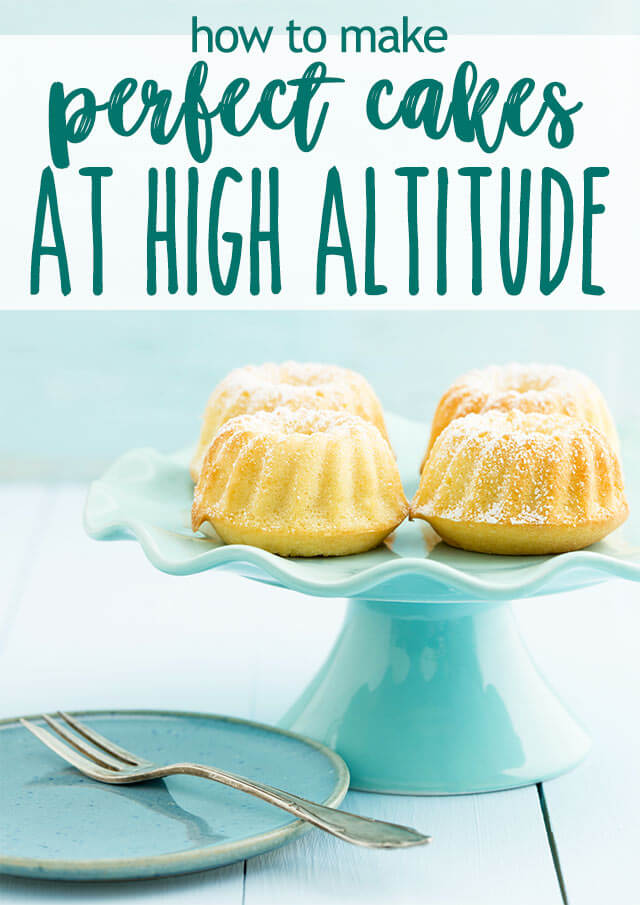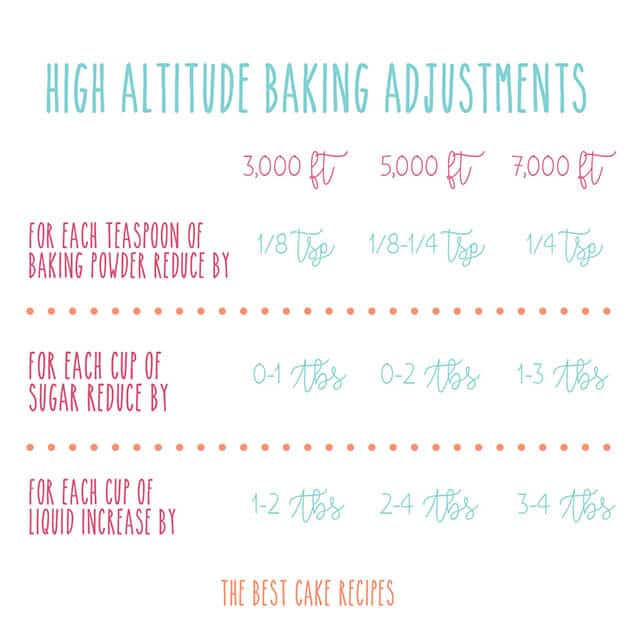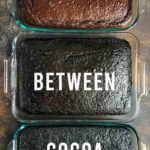High Altitude Cake Baking
If you’re struggling with baking the perfect cake at high altitudes, here are some high altitude cake baking adjustments and hints for great results.

High Altitude Cake Baking
If you’re baking in a kitchen below 3000 feet, you’ll likely be able to follow most recipes with ease – no modifications required. However, if you’re planning to bake at a higher altitude, you should know the elevation actually has an impact on the outcome of your cake or other baked goods. Follow your regular recipes with no changes and your face won’t be the only thing that falls when you pull your finished cake from the oven.
Problems with baking a cake at high altitude:
- First, the gases in your leavening agents (a fancy term for your baking soda or baking powder) are going to expand faster. What does this mean? Your cake could rise too quickly and collapse, which is no fun. Quickly- expanding cases can also cause your cake to turn out coarser than it should be.
- Second, liquids are going to boil at a lower temperature at high altitude than at sea level, which means they’ll evaporate more quickly. This could leave you with a dry cake, or one that easily sticks to the side of the baking pan.

High Altitude Cake Baking Adjustments
Fortunately, we’ve found a few ways to correct for these factors. There’s always an element of trial-and-error involved to adapt to your particular environment – after all, the humidity of your home, the accuracy of your oven temperature, and the quality of your cookware all factor into the final product. However, these strategies are proven to address some of the issues that stem from adapting a recipe to a higher elevation:
- Raise the heat. When you want to bake a cake at high elevation, you should turn the temperature up a notch. The higher temperature will let you shave a few minutes off of the overall cook time, letting you preserve a little more of your cake’s moisture. This will help prevent a dry, crumbly cake. Don’t go overboard here 15- 25 degrees Fahrenheit is all it should take to make a difference.
- Compensate the higher heat with an extra splash of liquid. Experienced bakers may find it easy to simply eyeball how much extra liquid to add, but if you’re new to the world of baking, err on the side of caution. I’m talking a VERY small amount of extra moisture. Upgrading to extra large eggs is often all it takes to moisten your cake.
- Cut the cooking time. Since you turned up the temperature, common guidelines recommend shaving five to eight minutes from each half-hour of baking time, but it’s always best to keep a close eye on your cakes as they bake to ensure they don’t come out overbaked or underdone. Stick a sharp knife, toothpick, or wooden skewer into your cake when you think it’s ready. If it emerges crumb-free, your cake is likely ready to rest. If not, continue to bake your cake until you’ve achieved the correct level of doneness.
- Reduce the amount of baking soda. Baking soda and baking powder are used to help your cake rise. To prevent your cake from rising too fast and collapsing, consider cutting back on the amount of baking soda your recipe calls for.
- Fill baking pans half full. Often times recipes call for filling a pan 2/3 full. Because the cakes rise higher, only fill your pans half full.
Cake Mix Cakes
Because cake mixes have adjustments for high altitude baking, they can often be an easy solution for high altitude cake baking. Here are a few of our favorite cake mix recipes that you’ll never believe aren’t homemade!





I’ve been using high-altitude baking instructions for 12 years–we’re at 7,500 feet–and my cakes turned out perfectly. But recently–in the past couple of years–all of a sudden my cakes are crumbly. I don’t understand? Nothing has changed yet my cakes have become crumbly. Since our home in CO is a vacation home and we’re here only occasionally, I thought my ingredients might be getting ‘old, as they sat in the pantry, so I replaced all the staples . . . sugar, flour, leavening agents, etc. Still they crumble?? Not just layer cakes, but loaf cakes like lemon loaf and cranberry-orange… Read more »
I live in Denver and found out quickly that the High Altitude Adjustments are necessary to bake cakes at this altitude. Then we bought property in the mountains and built a cabin at 8500 ft. So far, cake mixes still turn out well. I plan to try a from scratch pound cake in the near future and see how it turns out.